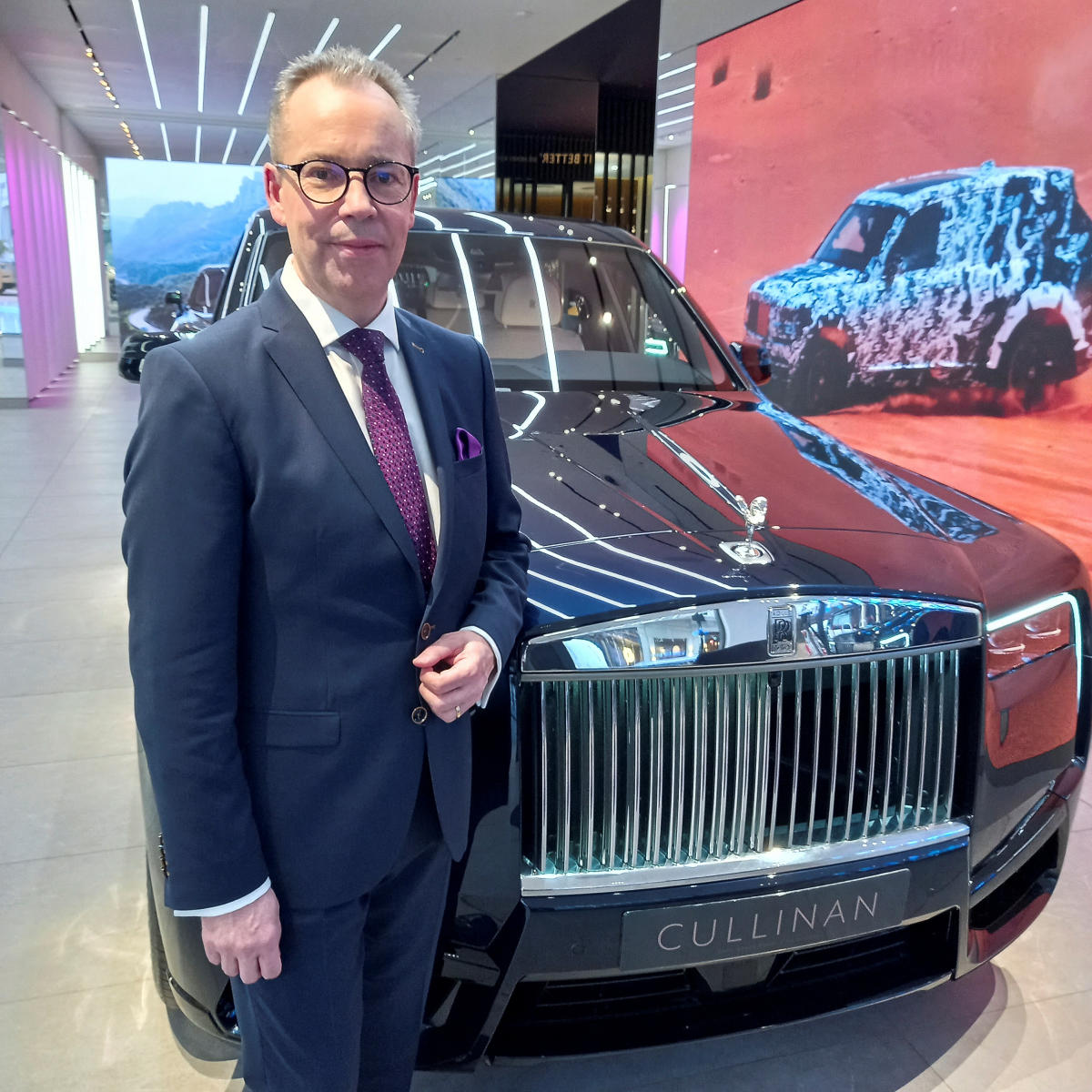Rolls-Royce (BMW.DE) CEO Chris Brownridge, like many other importers, is wary of President-elect Donald Trump’s plans to impose an array of tariffs on an array of countries. But he’s not all that worried, to be honest. That’s because business has rarely been better for the carmaker with products that start at $370,000.
The automaker, celebrating its 121st year in existence, sold over 5,000 vehicles in 2024, its third-highest sales year of all time. This is despite the fact that it released an updated Cullinan SUV and Ghost sedan midway through the year, a move that usually depresses sales since customers are holding off orders for the newer models.
It turned out not to be a big deal for Rolls.
The company noted that its bespoke commissions, where clients pay up for more unique and one-off customizations like special stitching or custom clocks built into the dash, is a growing business. Bespoke orders jumped 10% year over year — and Rolls is leaning into this business, spending $370 million to expand such offerings and increase the number of Private Offices, or client lounges, across the globe where customers spec out their creations.
“What we saw was a real increase in demand for our bespoke motorcars,” Brownridge said. “So we saw a real increase in the level of requests coming from our clients for motorcars with features which are very specific and personal to that particular client. And that’s coming off the back of our network of private offices.”
For Rolls, bespoke means more time is needed to create these enhancements and automobiles, but it also means more revenue and profit. Rolls doesn’t disclose its margin figures from these commissions, but generally customizations and bespoke work generates more profit than standard builds.
One wrinkle in Rolls-Royce’s growth plans, especially in the US, which is the company’s biggest market, is the threat of tariffs on international goods, especially luxury goods.
“If you put a tariff on the price of a good, it’s going to have some impact on the demand, … and if it’s a luxury good, there could be higher price elasticity. That’s certainly what I’d expect at Rolls-Royce,” Brownridge said. In other words: an impact on demand.
Read more: How do tariffs work, and who really pays them?
A 10% tariff, for instance, could raise Rolls-Royce prices by $50,000 or even $100,000 for cars customized and optioned in the $1 million price range. Even for Rolls-Royce’s ultra-high-net-worth clients, throwing away $100K isn’t what they want to be doing with their money.

